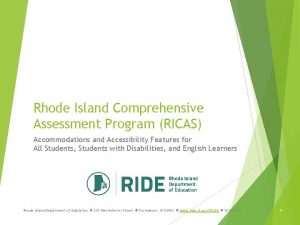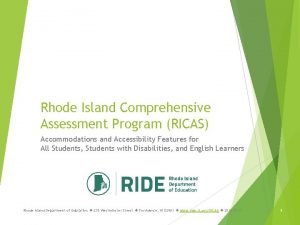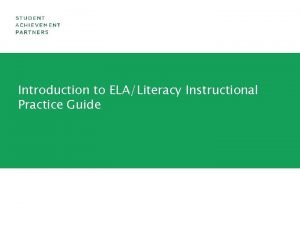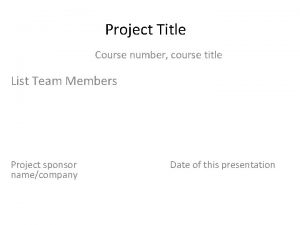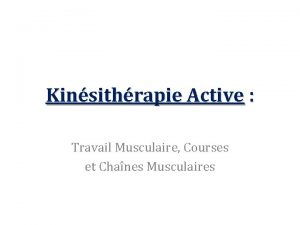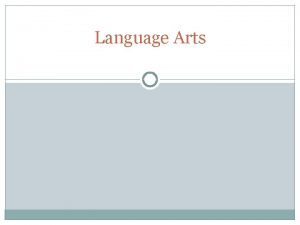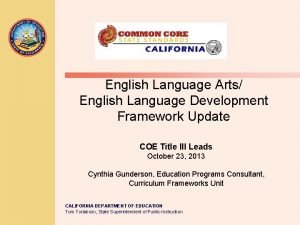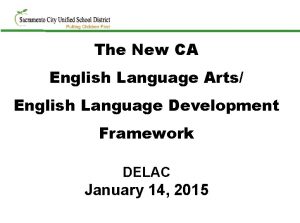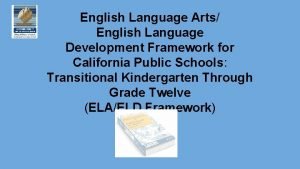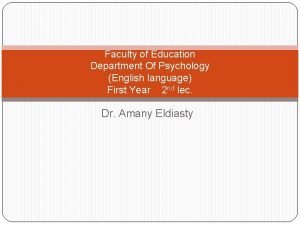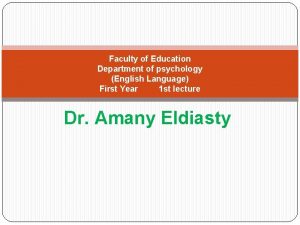Faculty of Arts Psychology Department English Language Course











- Slides: 11

Faculty of Arts Psychology Department English Language Course 2019/ 2020 Second Term Instructor: Hanan Abul Hamd

Modal Verbs These are modal verbs Can could May might Will would Must ought to Shall should • • •

Why Modals are different from normal verbs? or the third person singular • 2 - They make questions by inversion ( she can go. • Becomes : Can she go? 3 - They are followed directly by the infinitive of • another verb without to: He can speak Italian • She will come •

Modal Verbs of Probability ALSO CALLED MODALS OF DEDUCTION, SPECULATION OR CERTAINTY


Talking about the present Must/might/could/may/can’t + infinitive • I am waiting for Julie with another friend, • David. I ask : ‘ where is Julie? ’

David guesses: She might come soon. ( maybe) • She could be lost. ( maybe) • She may be in the wrong room. (maybe) • She must be on the bus. ( I’m sure this is a good • guess) She can’t be at home. (I’m sure this isn’t true. ) •

The opposite of must is can’t She must be on the bus. ( I’m sure this is a good guess) She can’t be at home. (I’m sure this isn’t true. )

Will/won’t We use will and won’t • when we are very sure. She’ll be at work now. • They’ll arrive in ten • minutes. should / shouldn’t Should and shouldn’t are • used to make an assumption. This assumption is about • what is probably true, if everything is as we expect. They should be there by • now.

Should is not used for negative events, instead will is used in this case. The underground will be very busy now ( not : should be)

Can is used for something that is possible, something we know sometimes happens: Prices can be high in London. Can is NOT used to talk about SPECIFIC POSSIBILITIES: He could be on the bus ( not: ‘can be’)


